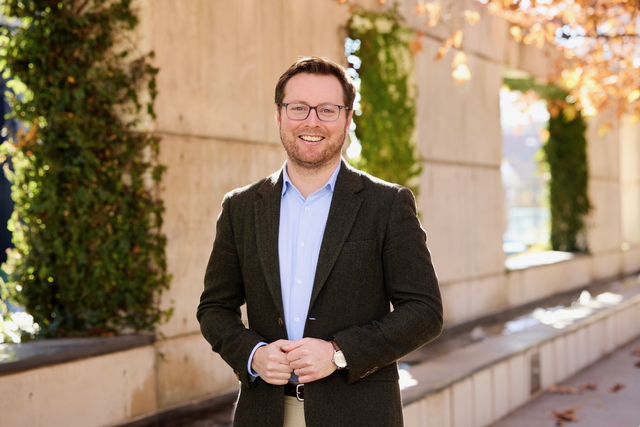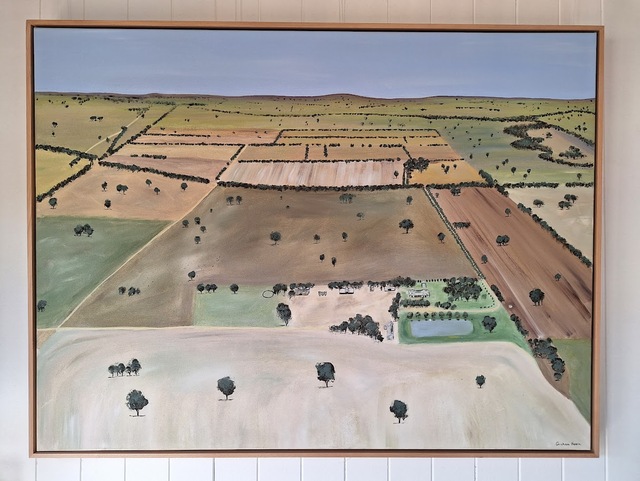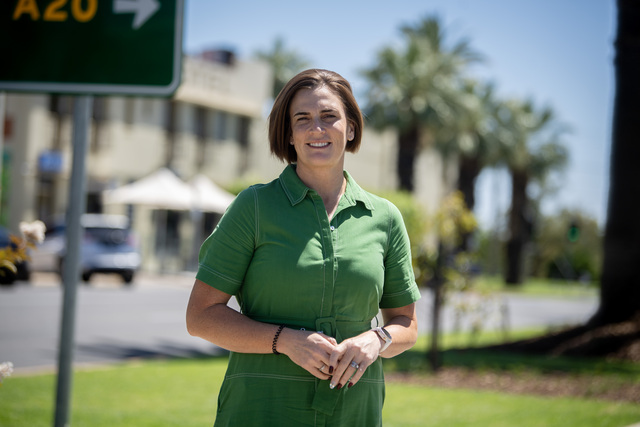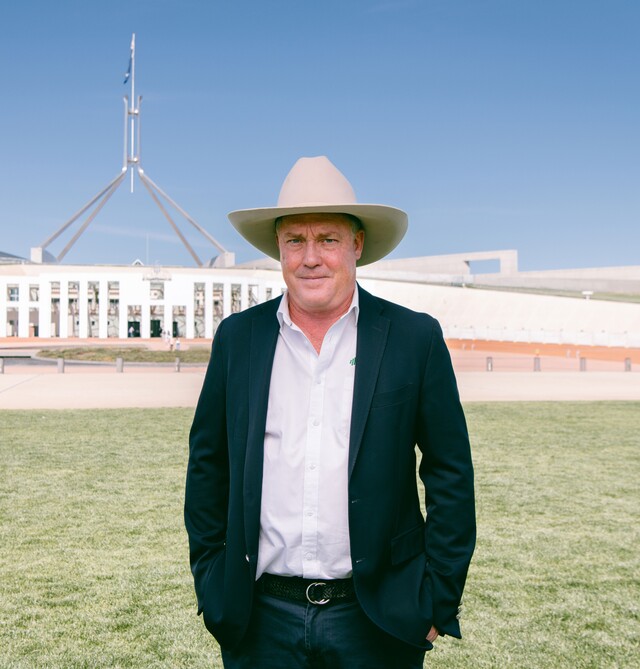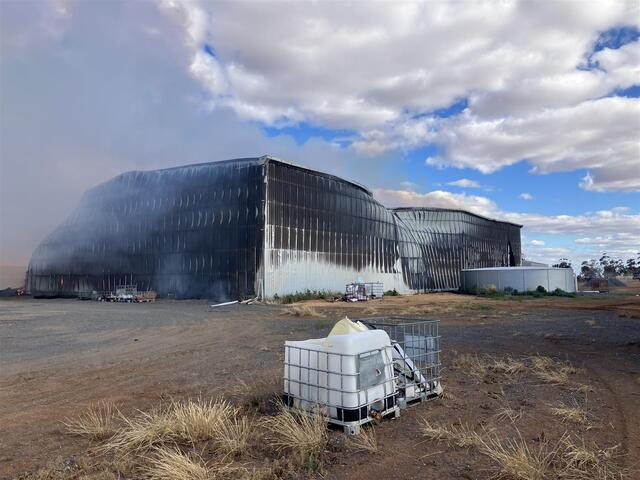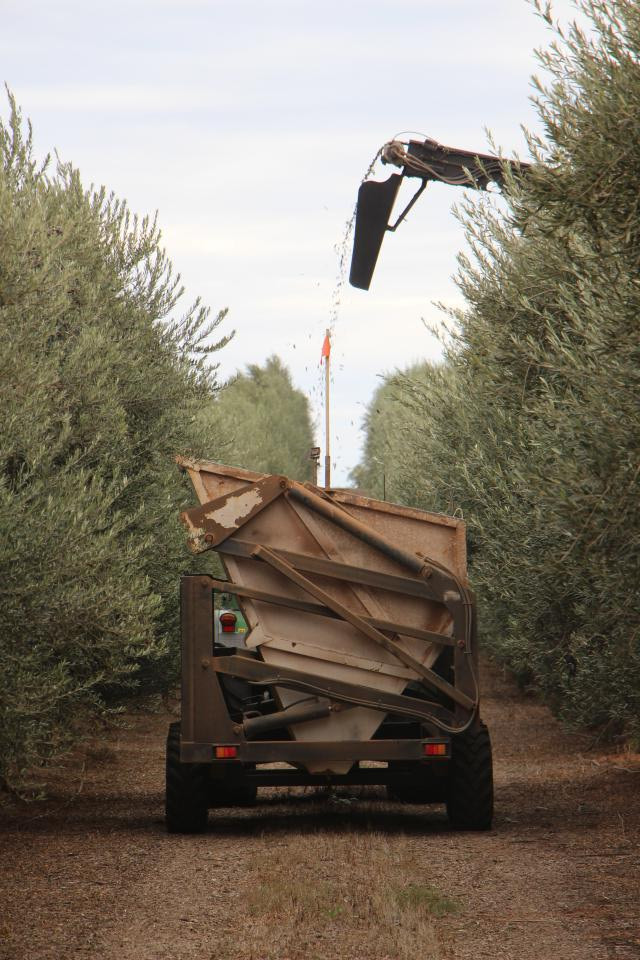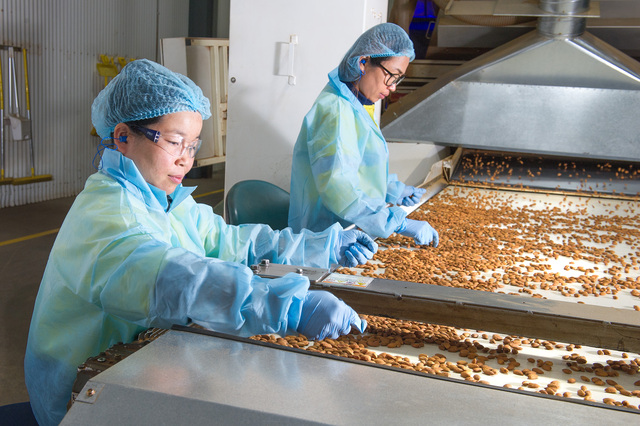THE Victorian Farmers Federation’s new chief executive, Charlie Thomas, has wasted no time outlining an ambitious five-year plan to restore the organisation’s strength, rebuild trust, and re-engage with farmers across the state.
Announced by VFF president Brett Hosking following an extensive recruitment process, Mr Thomas has hit the ground running since officially stepping into his new role.
Raised on a farm near Condobolin in New South Wales, Mr Thomas brings a lifetime of connection to the land and deep experience in agricultural advocacy.
Before joining the VFF, he served as deputy chief executive of the National Farmers’ Federation, leading major campaigns on land use, taxation and water rights.
His background also includes senior roles at the NSW Farmers’ Association and the Property Council of Australia, as well as legal qualifications from the University of Sydney and MBA from Melbourne Business School.
Sitting down with North West Farmer, Mr Thomas’ priorities were clear: put the VFF on a stable financial footing, grow membership, and strengthen the organisation’s advocacy for farmers.
“First and foremost, we need to get the VFF back on a stable financial footing,” he said.
“Membership has taken a hit in recent years, and we need to re-engage farmers across the state and show them the real value of being part of the federation.”
That value, Mr Thomas said, must be demonstrated through results.
He pointed to recent advocacy wins such as delaying the emergency services levy, improvements to drought support, and the Federal Government’s backdown on the proposed superannuation tax — outcomes he said make “a tangible, bottom-line difference to every farmer in Victoria”.
“We have to get out and show people that these kinds of wins don’t just happen. They happen because of the VFF,” he said.
Mr Thomas is also focused on increasing member benefits and services, improving the VFF’s commercial partnerships, and ensuring assets such as Farrer House, the organisation’s Melbourne headquarters, deliver strong returns that can be reinvested back into member services.
While some might question why the VFF remains based in the Melbourne CBD rather than the regions, Mr Thomas is firm on the importance of maintaining proximity to Parliament.
“We’re really the agricultural embassy in Melbourne,” he said.
“This is where the bulk of the politicians and bureaucrats are, and it’s where decisions get made. We have to be in the room to influence them.”
Mr Thomas said the VFF continued to maintain a strong relationship with Victorian Agriculture Minister Ros Spence, describing her as “a good supporter who’s always available and responsive”. But he’s also frank about frustrations with broader government policy.
“Our job is to have the difficult conversations when we need to — to disagree strongly, but keep the door open. Because when there’s a flood or bushfire, we need to be able to pick up the phone and get farmers’ concerns heard,” Mr Thomas said.
When asked about the biggest challenges facing Victorian farmers, Mr Thomas didn’t hesitate: drought, red tape, and taxation.
“The level of regulation goes up every year,” he said.
“Policymakers often don’t realise the cumulative effect their decisions have on small farm businesses.”
A recent VFF survey found that red tape and regulation ranked among the top concerns keeping farmers awake at night.
“The amount of paperwork and compliance farmers face now is enormous — and it’s getting worse every year,” Mr Thomas said.
With governments at all levels “strapped for cash,” Mr Thomas warned that farmers were increasingly being targeted through asset-based taxes.
“We represent people with significant assets but often limited cash flow,” he said.
“If governments keep taxing land and assets rather than income, they’ll drive younger generations away and weaken family farming across Victoria.”
Mental health was another key concern for the new chief executive, particularly as farmers face not just climate pressures but growing conflict over land access for renewable energy projects and transmission lines.
“You can see the toll these projects are taking on communities,” Mr Thomas said.
“Companies have tied up districts with non-disclosure agreements, leaving neighbours blindsided. That’s not how rural communities should operate.”
Mr Thomas said the VFF was pushing for better engagement from developers and governments, while also advocating for stronger mental health support for affected farmers.
He believed Victorian farmers were already world leaders in innovation but said more independent advice was needed to help them navigate emerging opportunities such as carbon and biodiversity markets.
“There’s a lot of commercial noise out there, but very little independent information,” Mr Thomas said.
“These are long-term decisions, and farmers deserve clear, trustworthy advice before they commit.”
Since taking the helm, Mr Thomas and Mr Hosking have been travelling across Victoria, attending branch meetings, field days and local events to rebuild trust and reconnect with members.
“The feedback has been really positive … people just want to see their organisation out there, listening,” he said.
The VFF is also modernising how it communicates with members, adopting email, text, WhatsApp and social media to reach farmers in more ways than ever before.
“Older and younger farmers engage differently,” Mr Thomas said.
“So, our approach is simple: reach them every way we can, as often as we can — until they tell us they’ve heard too much.”
Asked what Victoria would look like without the VFF, Mr Thomas was unequivocal.
“If the VFF didn’t exist, farmers would be forgotten,” he said.
“There are just things that governments wouldn’t think about or act on without a farmer-led voice at the table.”
As Victoria heads toward a state election in 2026, Mr Thomas said the VFF would be working closely with all political parties to ensure agriculture remains a central issue.
He’s determined that when his time as chief executive ends, he’ll be remembered for one thing: leaving the federation — and Victoria’s farmers — in a stronger position.
“Victoria needs a strong VFF,” Mr Thomas said.
“We’ve had our challenges, but it’s time to pick ourselves up, dust ourselves off, rebuild trust, and show every farmer why this organisation matters.”

